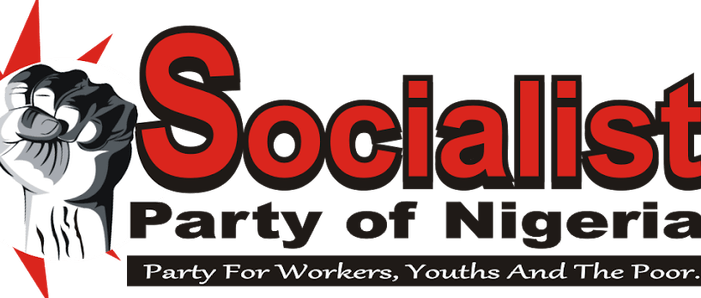The Socialist Party of Nigeria, SPN, has dismissed as a mere image laundering, President Muhammadu Buhari’s declaration of June 12 as Nigeria’s Democracy Day.
This, the party argued, was based on the notion that the ideals fought for by the people of Nigeria 26 years ago had not been achieved.
The position of the party was made known in a press statement issued by its Acting Chairperson, Abiodun Bamigboye and its National Secretary, Chinedu Bosah.
Stated SPN: “President Buhari’s declaration of June 12 as Democracy Day is nothing but an image-laundering exercise by a regime which has failed just like its predecessors to meet the basic needs and aspirations of ordinary Nigerians over the past four years.
“Despite all efforts to present him as a democrat, history clearly shows that President Buhari holds as much responsibility as all past military rulers in Nigeria for the military incursion into political power in Nigeria and all the consequences that flow from it.”
SPN said it celebrated the anniversary of June 12 with workers, youthS and poor Nigerians describing them as the true champions of democracy.
It reiterated that it was unfortunate that the good life they battled for had not been achieved, 26 years after.
The statement reads in part:
“We salute the victims and heroes of the June 12 struggle whose blood and sweat watered the tree of freedom from despotic military rule.
“Unfortunately, it would now appear that all their labour is in vain considering how none of the hopes and aspirations of a better life, which drove the working class, heroic youth and poor unto the streets against the armed military junta in countless strikes and mass demonstrations, have gone largely unachieved over the past 20 years of unbroken civil rule.
“Capitalist-induced mass poverty in the midst of abundance, illiteracy, the collapse of electricity, water and other public infrastructures, insecurity, attack on democratic rights, corruption, implementation of anti-poor policies of privatisation and deregulation, high unemployment rate and collapsed living standards remain a permanent feature of life in Nigeria. This means that except the change in the garb of the ruling class from military fatigue to flowing robes, civil rule has not brought any fundamental improvement to the condition of the working and toiling people. Rather things are worse today with record-level unemployment among young people. That suicide is on the rise among young people is a sign of the sharply deteriorating situation.
“More so, the same kind of military jackboot authoritarianism, repressive policies and attacks on democratic rights which were the hallmark of military rule have regularly been a feature of civil rule since 1999. Two examples suffice. Firstly, all across campuses today, student activists are being routinely expelled and suspended and students union banned for the simple reason that they challenge anti-poor policies of the school administration. Secondly, the persistent assault on the most basic democratic rights by the military, police, DSS and other security agencies over the past two decades have frequently torn off the mask of what was presented in 1999 as democracy but which the experience of the past two decades now fully shows to be no more than a dictatorship of the capitalist ruling elite over the working class and poor.
“For instance, over the past three months, Police and the Department of State Services (DSS) have been used to harass the acting chairperson of the Socialist Party of Nigeria (SPN) and a prominent workers activist in Oyo State, Comrade Abiodun Bamigboye for the simple reason that he chose to solidarize with workers of Sumal Foods Ltd to oppose the Management’s unfair labour practices including exploitative casual/contract staffing. He has been arrested about 7 times over the past two weeks and arraigned on Friday 7 June 2019 at the Magistrate Court, Iyaganku, Ibadan, Oyo State. Anyone familiar with the sordid history of military rule in Nigeria especially how security agencies were used to hunt down and cast into jail journalists, lecturers, activists, workers and students leaders would see how this pattern of events we have just described under Nigeria’s civil rule bears a striking resemblance.”














